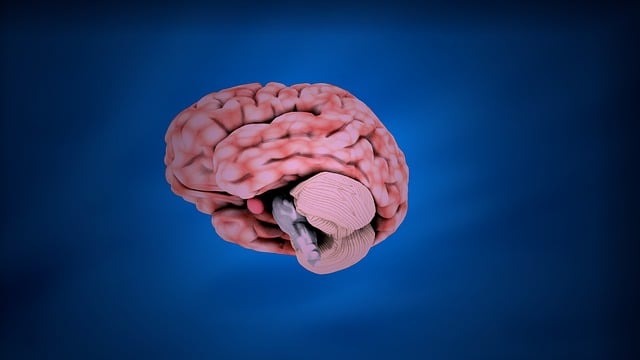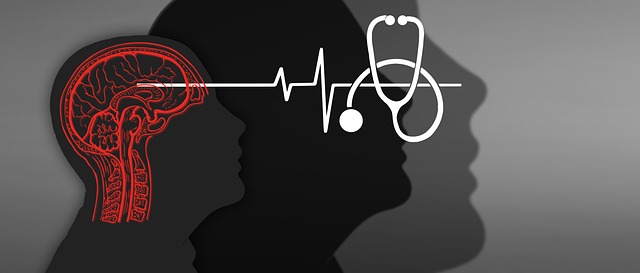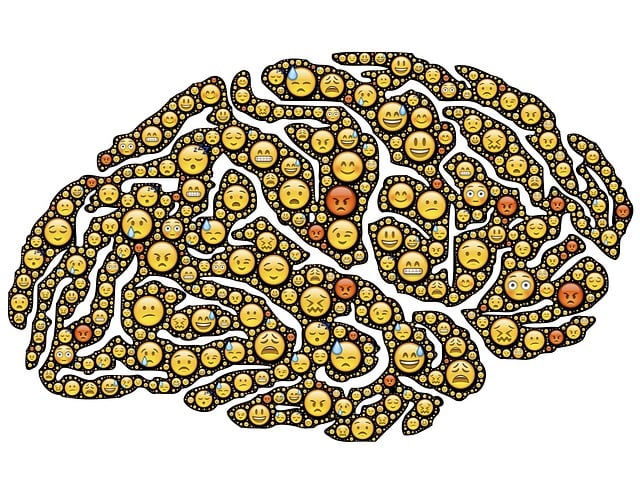Emotional intelligence (EI) is a powerful tool for improving the well-being of elderly individuals, helping them cope with age-related stressors like health issues, loneliness, and cognitive decline. High EI levels foster self-confidence, resilience, and compassion, enhancing interpersonal relationships and reducing social isolation. Targeted interventions such as stress management workshops can equip elders with effective emotion management skills, mitigating risks of substance abuse and promoting overall emotional health. Recognizing red flags like mood shifts and physical changes is crucial for addressing drug abuse among the aging population. Specialized therapy options tailored for older adults offer coping strategies, conflict resolution, and mood management, leading to improved quality of life and preventing complications from unaddressed substance misuse. Early intervention and integrating mindfulness practices, self-care routines, and effective communication skills are key to enhancing emotional intelligence in elders recovering from drug or substance abuse. Support systems like community organizations, mental health clinics, and rehabilitation centers provide tailored therapy programs featuring individual counseling, group sessions, and journaling exercises to foster emotional processing and progress tracking, reducing stigma and creating supportive recovery environments among peers.
Emotional intelligence (EQ) plays a pivotal role in the well-being of the elderly, offering a protective shield against potential mental health challenges. This article delves into the intricate relationship between EQ and geriatric care, focusing on drug abuse recovery. We explore practical strategies to enhance EQ in older adults, recognizing subtle signs of substance abuse, and emphasizing the significance of support systems for effective therapy. By understanding the impact of emotional intelligence, we can navigate the complex landscape of elderly mental health and facilitate a smoother path to recovery, particularly in addressing drug abuse among seniors.
- Understanding Emotional Intelligence and its Impact on Elderly Well-being
- Recognizing Signs of Drug Abuse in the Elderly Population
- The Link Between Emotional Intelligence and Substance Abuse Recovery
- Strategies to Enhance Emotional Intelligence in Elders
- Support Systems and Resources for Elderly Drug Abuse Therapy
Understanding Emotional Intelligence and its Impact on Elderly Well-being

Emotional intelligence (EI) refers to an individual’s ability to recognize, understand, and manage their own emotions, as well as empathize with and influence the emotions of others. For the elderly population, cultivating emotional intelligence can have profound implications for their overall well-being. As people age, they often face various challenges such as health concerns, loneliness, and cognitive changes, which can significantly impact their emotional state.
High levels of EI can enhance coping mechanisms in older adults, helping them to navigate through stress, anxiety, and depression. It encourages the development of confidence-boosting strategies, enabling them to maintain a sense of self-worth and resilience despite age-related transitions or life-altering events. Moreover, EI fosters compassion cultivation practices, which can improve interpersonal relationships and reduce social isolation—a significant concern for many elderly individuals. By participating in stress management workshops or organization programs, the elderly can learn valuable tools to manage their emotions, thereby reducing the risk of substance abuse, including drug or alcohol addiction, which is a growing concern within this demographic.
Recognizing Signs of Drug Abuse in the Elderly Population

Recognizing signs of drug abuse in the elderly is a crucial aspect of ensuring their well-being. As our population ages, it becomes increasingly important to be aware of potential red flags indicating substance abuse among older adults. The behavior changes associated with aging can sometimes mask underlying drug or alcohol misuse, making it a complex issue. Common symptoms may include dramatic shifts in mood, increased isolation, and unusual lethargy or agitation. Physical signs such as rapid weight loss, dilated pupils, or poor hygiene might also point towards substance abuse.
The impact of drug abuse on the elderly is multifaceted, often leading to exacerbated depression, anxiety, and social withdrawal. It can also contribute to existing health conditions and hinder overall quality of life. Fortunately, there are effective therapy options tailored for older adults with substance use disorders. Through specialized care, conflict resolution techniques, and mood management strategies, seniors can learn to cope, regain control, and successfully navigate their recovery journey. Addressing drug abuse early is key in preventing further complications, ensuring a brighter and healthier future for our elderly population.
The Link Between Emotional Intelligence and Substance Abuse Recovery

Emotional intelligence plays a pivotal role in substance abuse recovery, especially when tailored to meet the unique needs of elders facing drug or alcohol dependencies. Beyond traditional therapy for elders with drug abuse issues, enhancing emotional intelligence can be a game-changer. It equips individuals with the skills to recognize and manage their emotions effectively, which is crucial as they navigate the challenges of recovery.
By incorporating self-care routine development and stress reduction methods into their recovery plan, elders can improve their self-awareness exercises and overall mental health. This proactive approach helps prevent relapse by fostering resilience against stressful situations that might trigger substance abuse. In essence, emotional intelligence provides a robust foundation for long-term recovery, ensuring individuals are equipped to handle life’s ups and downs without resorting to harmful substances.
Strategies to Enhance Emotional Intelligence in Elders

Helping elders develop emotional intelligence is a multifaceted process that can greatly enhance their quality of life. For older adults, particularly those recovering from therapy for drug abuse or substance abuse, emotional regulation becomes paramount. Incorporating strategies like mindfulness practices into their daily routines can significantly improve emotional intelligence and mental health. Encouraging self-care routine development allows elders to better manage stress and emotions, which is crucial in preventing relapse and fostering a sense of well-being.
Mental illness stigma reduction efforts play a significant role in this process. By creating supportive environments and promoting open conversations about emotional struggles, elders can feel more comfortable expressing their feelings and seeking help when needed. This, coupled with effective communication skills, enables them to build stronger connections with peers and caregivers, contributing to improved emotional intelligence and overall mental health.
Support Systems and Resources for Elderly Drug Abuse Therapy

Support systems play a pivotal role in the therapy process for elderly individuals struggling with drug or substance abuse. Many older adults may face unique challenges when it comes to seeking help, often due to societal perceptions and the stigma surrounding mental illness. This can create barriers to accessing appropriate care. Fortunately, there are dedicated resources available to support this demographic.
Community-based organizations, mental health clinics, and specialized rehabilitation centers offer tailored therapy programs for elders. These facilities provide not only individual counseling but also group sessions that foster a sense of belonging and camaraderie, which is essential for overcoming isolation. Additionally, the Mental Wellness Journaling Exercise Guidance can be a powerful tool to help seniors process their emotions, reflect on their experiences, and track their progress during therapy. Empathy-building strategies, often incorporated into these programs, encourage understanding and support among peers, helping to reduce the mental illness stigma and create a nurturing environment for recovery.
Emotional intelligence plays a pivotal role in enhancing the well-being of the elderly, particularly when addressing substance abuse issues. By recognizing and understanding emotional cues, elders can develop healthier coping mechanisms, fostering improved mental health. The strategies outlined in this article provide valuable tools to boost emotional intelligence in older adults, ultimately aiding in their recovery from drug abuse. Accessing appropriate support systems and resources is essential for effective therapy, ensuring a brighter and more resilient future for those facing these challenges.














